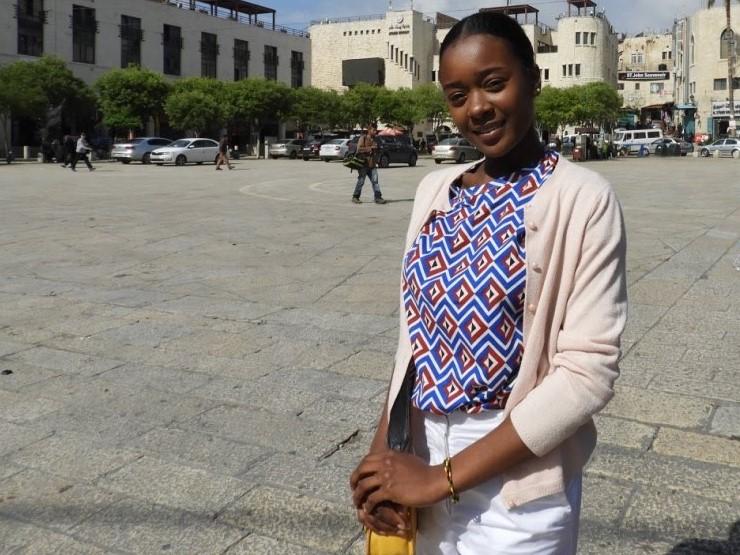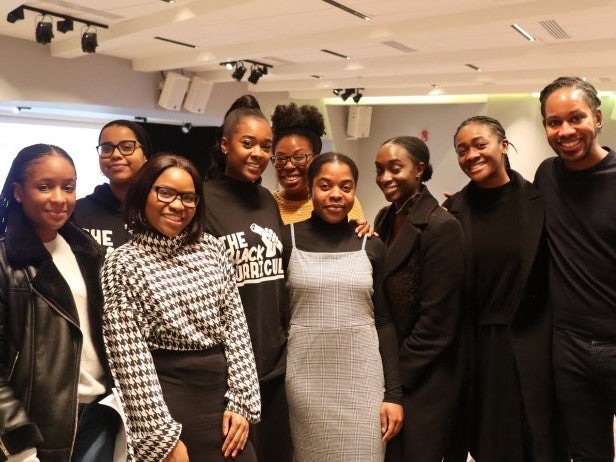‘We’re not being allowed to reach our potential’: The 23-year-old leading the charge to make black history mandatory in school
Lavinya Stennett set up Black Curriculum a year ago to demand a more diverse syllabus. Now the SOAS graduate is being inundated with support, writes Colin Drury


Lavinya Stennett may be one of the few people in the UK not currently offering an opinion on statues.
The 23-year-old Londoner is the founder of Black Curriculum, a social enterprise set up to campaign for black history’s mandatory inclusion in the national school syllabus.
The organisation is currently seeing a surge in support following two weeks of anti-racist demonstrations across the country, she says. Almost 100,000 people have downloaded its open letter to education secretary Gavin Williamson asking for pupils to be taught a broader view of history.
When asked what she thinks of Edward Colston’s monument being toppled in Bristol at the weekend, Stennett sounds somewhat detached. “I don’t really have a view, if I’m honest,” she says.
“If people were learning the history of slave traders in a more critical way at school, I don’t think we would be here [debating statues],” she adds. “Maybe we would have had more people of power questioning it in the first place.”
She believes that had schools imparted a deeper understanding of race and British society in the years leading up to this moment, campaigners may not have ended up sparring over whether monuments to long-dead figures should be trashed or treasured. “There would be more of a unified decision over what should be done,” she says.
Such social cohesion is at the heart of what Black Curriculum, founded last summer just weeks after Stennett graduated from London’s School of Oriental and African Studies (SOAS), is trying to achieve.
It reckons a syllabus which embeds, for instance, teaching about the lives of black people in Britain before the 20th century and African views on colonialism would not only boost the attainment levels of black pupils but reduce institutional racism in the UK over the long term.
“If we broaden what is taught to include different narratives, it creates a peaceful conversation where unconscious bias – which consolidates existing structural racism – can be confronted,” says Stennett. “The situation we’ve seen over the last couple of weeks is fuelled by lack of understanding of the other. Education is a key tool to resolving that.”
The current curriculum, she says, does not reflect the diverse population it serves. “That lack of connection causes a lack of identity and dissatisfaction, and that’s why there are so many issues with our communities. It’s not that we’re intrinsically wayward. There are systemic biases that do not allow us to reach our full potential.”

Determined to make a difference after university, Stennett, who lives in Brixton, applied for a grant to set up Black Curriculum. She got a couple of associates on board – fellow graduates Bethany Thompson and Lisa Kennedy – and has spent the last 12 months developing an oven-ready black history syllabus which could be integrated into current education across several subjects for pupils aged 8 to 16.
Among topics included (and which the organisation already teaches in workshops) are music as cultural identity, the “sus” laws, and migration in the 20th century. Things that will, says Stennett, “reinforce a sense of belonging”.
Now, following the nationwide anti-racism protests sparked by the death of George Floyd in the US, her campaign to have such topics made mandatory has won widespread support and praise.
“I think we’ve gained [critical momentum],” she says, adding that, during a meeting with Department for Education officials in December, they were told the proposals were eminently achievable; it just required political will.
The department says black history is an “important topic which all schools have the freedom to teach”. Arguably there has never been a more important time to make it mandatory.
Widespread protests have demonstrated an appetite for change, while the coronavirus pandemic has laid bare the extent of inequality in the UK, with black and minority ethnic groups twice as likely to die from Covid-19 as white people – even once deprivation and other factors have been taken into account.
“There are so many ways such inequality needs to be addressed,” says Stennett. “But to stop it being perpetual, you must change education.”
Plus, she points out, the thing is that black history has some brilliant stories which most people never hear. As our conversation winds down, she reels off the example of John Blanke, a royal trumpeter from Africa who was among hundreds of black people living in Tudor London.
There’s a letter he wrote to Henry VIII asking for a pay rise, she explains. “He was on 8p a day which converts to about £600 today. So, clearly, he was clearly someone who knew his worth.”
It is a story, she hopes, which will be known by – and inspire – thousands of school children, black and white, in the not too distant future.
Join our commenting forum
Join thought-provoking conversations, follow other Independent readers and see their replies
Comments